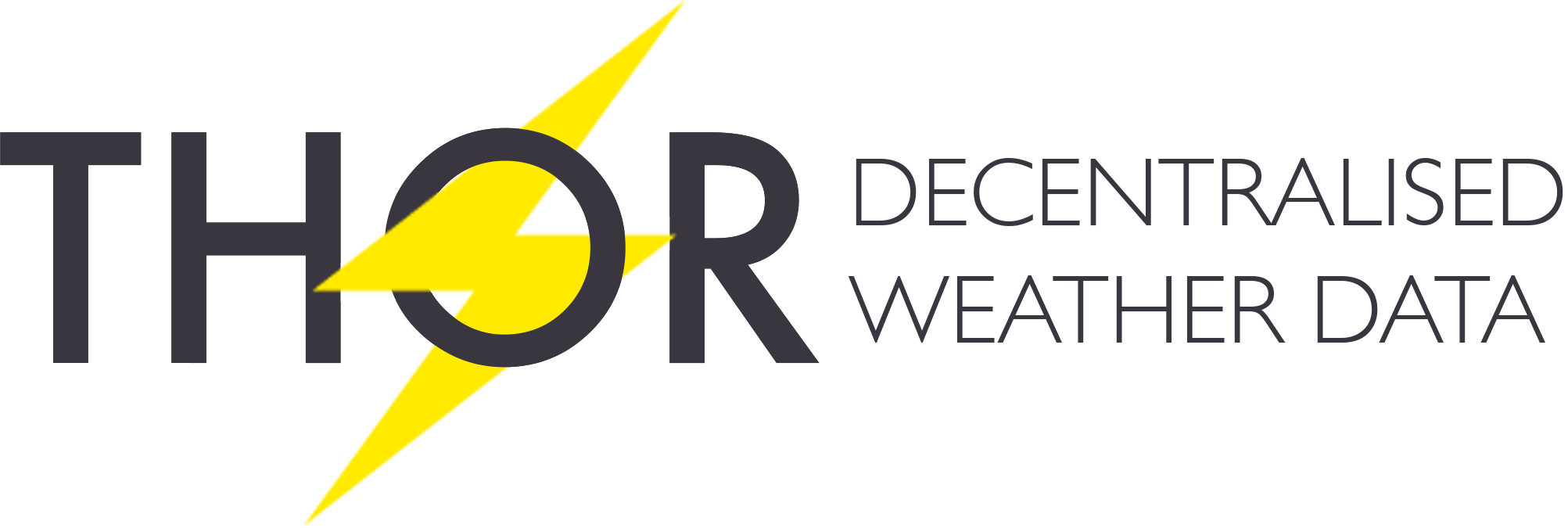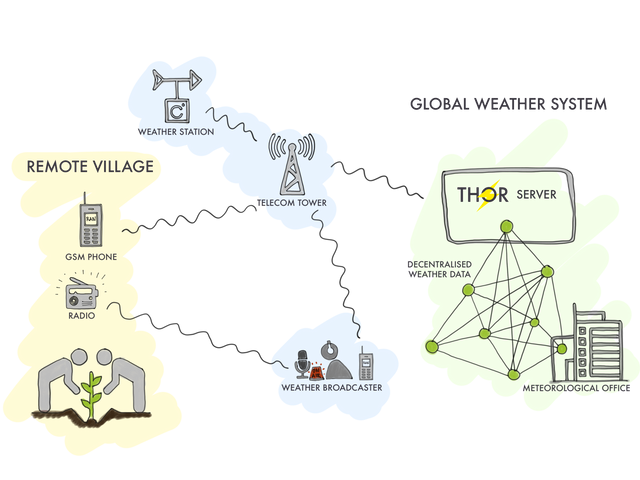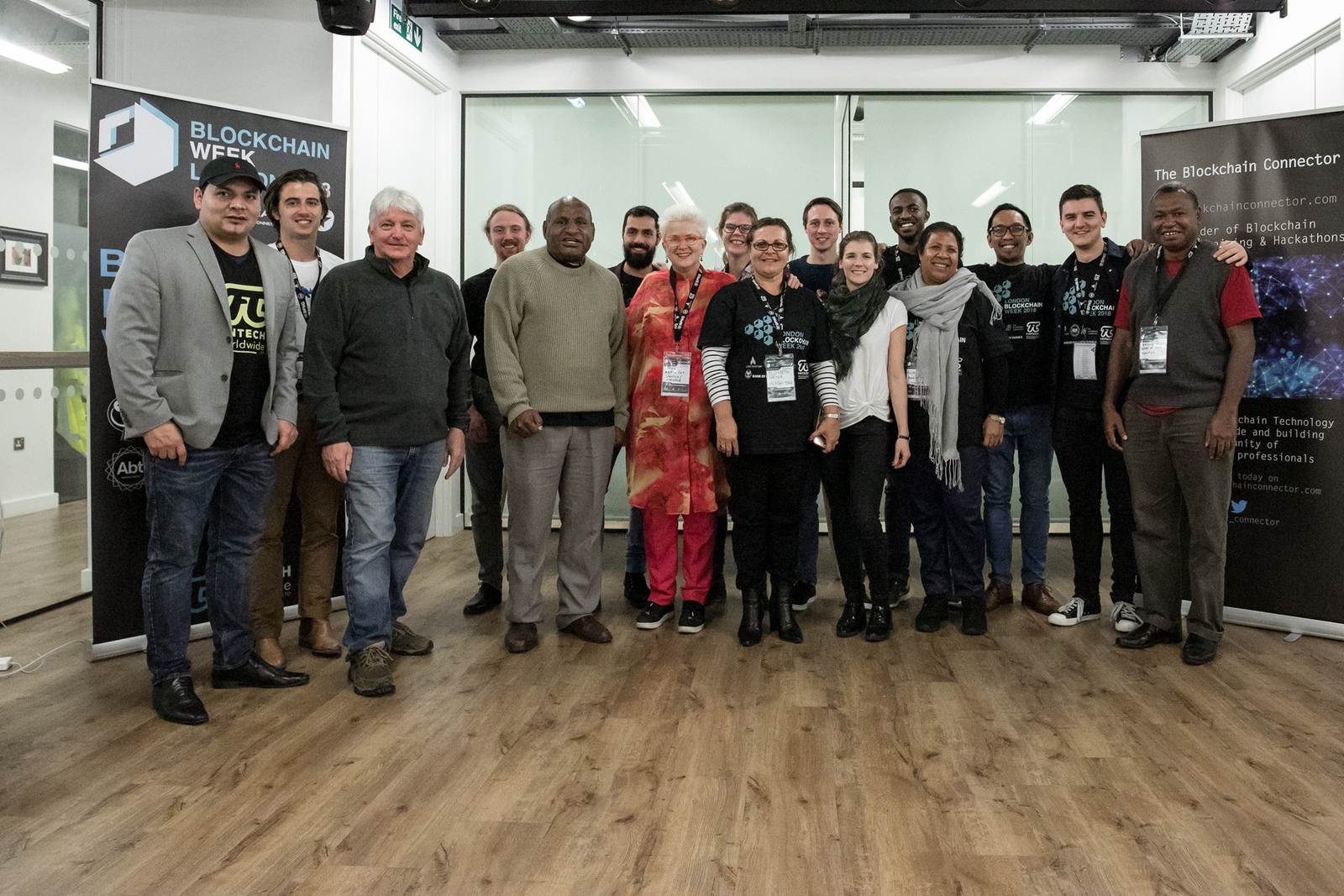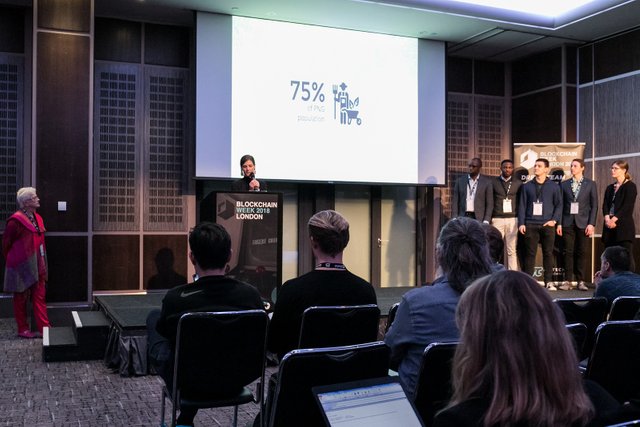Thor: Decentralised Weather Data

Thor aims to make accurate weather data available to everyone. We’ve identified that some of the most vulnerable people in the world, that would benefit the most from accurate weather forecasts, don’t have access to reliable, long-range weather forecasts. With Thor we plan to change that. For good.
An Idea was Born
During an intense and irregular weekend in London; a winter weekend where the weather was fleeting and wildly changeable. Thor was born.
It was the weekend before the start of the London Blockchain Week conference. During the weeks leading up to the event, Blockchain in one form or another had been thrust into the spotlight more and more frequently as crypto-currencies continued their meteoric rise into mainstream consciousness. It was inevitable that the blockchain hackathon signaling the start of London Blockchain Week would be a sell-out event – even at triple the capacity of the previous year’s.
The challenge of the hackathon was to “leverage blockchain technology to improve the quality of life for people of developing nations through better municipal, citizenship or humanitarian services”. What made this hackathon particularly unique and challenging was that since one of the main sponsors was the Bank of Papua New Guinea there was an emphasis on “your concept needs to work in remote areas”.
We were given a better idea of what is life for the inhabitance of Papua New Guinea (PNG) from the sponsors; a country of around 7 million people, where over 800 languages are spoken, over 80% of the population live in rural and isolated communities; that PNG is a country where agriculture provides a livelihood for 85% of the population and is responsible for roughly 30% of PNG’s GDP [1] and that people have few or no facilities of modern life [2]. We came to a better understanding of what life is like for many Papuans – that a large proportion of the population don’t have reliable electricity sources, Internet access or Smart Phones; that creating an elaborate iPhone app or fancy website wasn’t going to cut it.
Where others might have seen insurmountable challenges, we saw the enormous potential to have a positive impact on developing countries.
Democratising Weather Data
Amongst the many facilities of modern life that Papuans lack is something that is easy to take for granted - access to accurate weather forecasts. Given that agriculture provides a livelihood for 85% of the population and is responsible for roughly 30% of PNG’s GDP, it seemed reasonable that if we could figure out a way to improve the long range weather forecasts for the country that we could really make a difference that could improve millions of people’s lives.
Thor attempts to address the issue in three different ways:
- Create a new global, blockchain infrastructure for storing raw weather data, cleaned weather data and weather forecast data.
- Create a SMS-based solution for registering for, and receiving weather forecast information.
- Identifying low-cost, Open Source solutions for gathering weather data.

A Global Blockchain Infrastructure
A valid criticism of many blockchain-based projects – and a question that I encourage you to ask as you encounter new blockchain-based projects – is “do you even need a blockchain”? or “why not just use a database”?
There are a few reasons why we think that democratising weather data on a blockchain is beneficial:
- Decentralises the burden: developing countries don’t need to worry about what infrastructure they need to store large amounts of data for a substantial period of time, how to back the data up, how to secure the data, how to make the data available to interested parties 24/7 etc.
- Incentivise participation: it opens up new possibilities for incentivising 3rd parties to contribute data or perform specialist tasks on the data such as cleaning the raw data or running processor intensive weather models on the data.
Removes data silos: when looking for weather data that extends across borders you no longer need to register for multiple services and make multiple API calls. - Immutable, historical data: future generations can be confident that they will have access to weather data that has not be modified to fit anyone’s political agenda or lost due to a virus or hack.
Winning the Hackathon
There was a large turnout for the hackathon’s finale, on the Sunday, with 29 teams pitching a variety of ideas – with probably the largest amount being around financial inclusion.
After around 3 hours of pitches and Q&As, the judges convened to make the final decisions on the two winning teams.

The winning teams and judges.
We were elated to find out that we were one of the two winning teams – and that we would be given the opportunity to present in front of hundreds of people at the London Blockchain Week conference.

Team Thor on stage at the London Blockchain Week conference.
What's Next?
We're really keen to see how we can progress the idea further: we're looking for people that are experts in the field of weather data that are happy to talk to us, we're looking into what existing weather data set we can get hold of to test our ideas on, we're comparing different blockchain solutions, we're looking at different solutions for cheap, 3D printed weather stations that can be deployed in remote areas. We're going to keep continuing to spread the word.
We hope that one day soon that we'll have a prototype Thor system that we can trial in a developing country - maybe even Papua New Guinea.
This is a wonderful idea
What more power can we take away from governments?